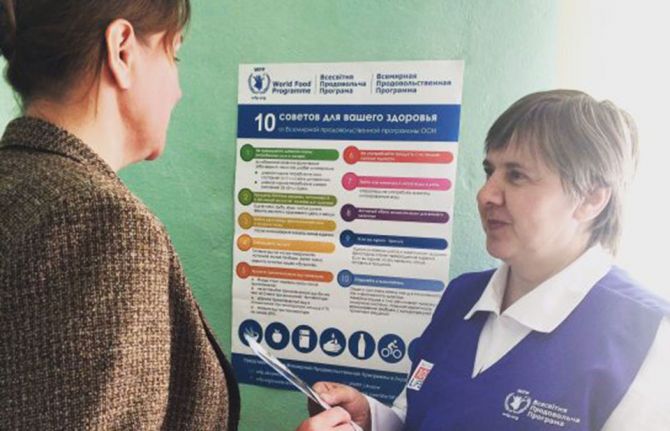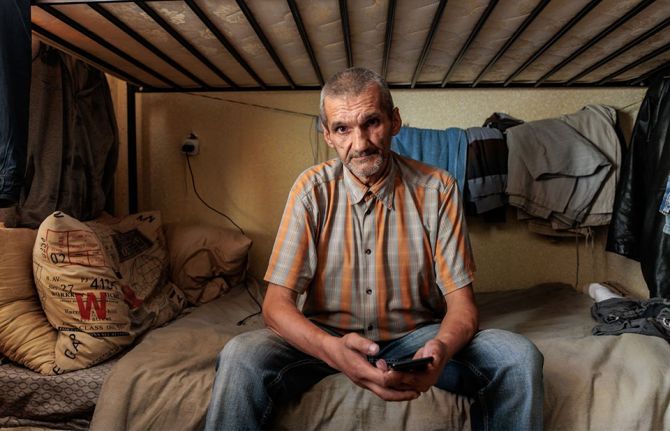

Update
Civil society and WFP increasing food security in Ukraine
20 October 2017
20 October 2017 20 October 2017As for everyone, food security is vital for people living with HIV. Access to food improves adherence to HIV treatment and lack of sufficient food can increase the risk of HIV infection through increased transactional, survival and intergenerational sex. And malnourishment affects how well HIV treatment works—people living with HIV who are malnourished are two to six times more likely to die in the first six months of treatment than those who are not.
For people living with HIV in eastern Ukraine, the conflict has had a significant impact on their food security, with most people living with HIV severely food insecure and living in extreme poverty. The conflict has displaced many people—especially women and children—HIV services have had to be relocated and the quality of services in many facilities is poor.
To prevent the collapse of HIV services and to increase food security for people living with HIV, civil society organizations and the United Nations have stepped in. In the parts of eastern Ukraine not controlled by the government, the United Nations and a few humanitarian organizations are the only entities making antiretroviral therapy and other medicines available.
The World Food Programme (WFP), a UNAIDS Cosponsor, is assisting thousands of people living with HIV in the conflict-affected areas with food support through a programme with the All Ukrainian Network of People Living with HIV, a nongovernmental partner of WFP. In the government controlled areas of Donetsk and Luhansk, 6500 people living with HIV are in a cash-based transfer programme to provide money for essential food. The assistance, which includes regular medical appointments and the monitoring of adherence to HIV treatment, has led to a fourfold decrease in treatment interruptions. In areas of eastern Ukraine not controlled by the government, in-kind food assistance has helped thousands to meet their basic needs.
The need for food support among people living with HIV in eastern Ukraine is, however, far outstripped by the resources available to support them. Although 6500 people living with HIV in Donetsk and Luhansk are accessing cash-based transfers, thousands more are not being assisted, and the need is even greater in the areas beyond government control. There are fears that even this limited help may have to end, since WFP has yet to receive funds to continue the programme in 2018.
Quotes
“Food security is important for everyone, but particularly for people living with HIV. I commend the World Food Programme and civil society for their programme to step up food security for people living with HIV in conflict-affected eastern Ukraine.”
“In eastern Ukraine, the World Food Programme saves lives by providing food assistance to people living with HIV who are impacted by the region’s emergency. If we can raise more money, the World Food Programme can sustain this work and ensure that those who are the most vulnerable are not without help.”
Region/country
Related
 Ukraine: Keeping people in care
Ukraine: Keeping people in care

23 February 2026
 Women, HIV, and war: a triple burden
Women, HIV, and war: a triple burden

12 September 2025
 Displacement and HIV: doubly vulnerable in Ukraine
Displacement and HIV: doubly vulnerable in Ukraine

11 August 2025
